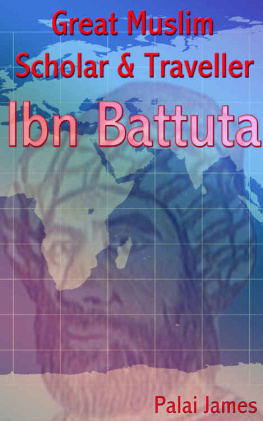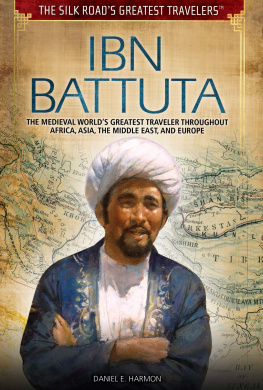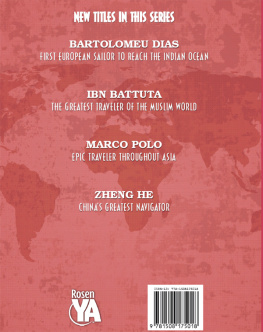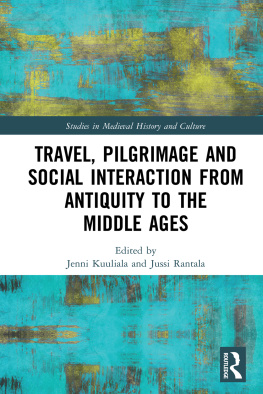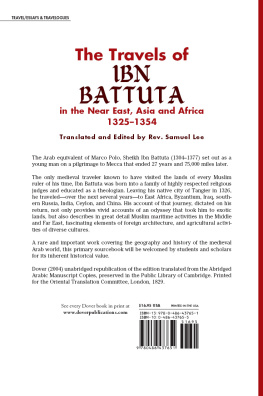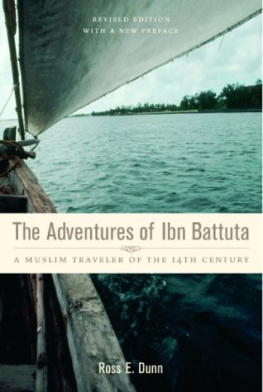2. Early Life
Abu Abdullah Muhammad Ibn Abdullah Al Lawati Al Tanji, well known as Ibn Battuta was born on 25 February, 1304 in Tangier (Morocco) into one of the most respectable and educated families in the country. This family was known for its expertise in Islamic religious law or Sharia. In other words, it was a renowned family of Islamic legal scholars in Tangier.
True to the tradition of his family, Ibn Battuta received literary and scholastic education when he was quite young. He studied in a Sunni Islamic jurisprudence school. It provided the dominant form of education in North Africa at that time.
Ibn Battuta just loved travelling. Unlike most other members of his age and class, he considered experience gained through travels to be a more important source of knowledge than the mere study of books. As mentioned above, some people just love travelling. It is an inborn urge to travel into unknown lands or unexplored world. Ibn Battuta is reported to have said when he was quite young that he was "swayed by an overmastering impulse within me and a desire long-cherished in my bosom to visit these illustrious sanctuaries."
He took the ultimate decision to quit his family and the town for the sake of travelling. As he says, he resolved, "to quit all my dear ones, female and male, and forsook my home as birds forsake their nests." In 1325, at the age of 21, Ibn Battuta set off from his hometown on a Hajj or pilgrimage to Mecca. This was to be a journey of about 16 months but he returned home in 1354, i.e., after nearly three decades.
3. Prior to Reaching India
Ibn Battuta says that he set out alone in 1325, finding no companion and no party of travellers with whom to associate himself. He travelled on his first Hajj to Mecca overland. Covering a distance of over 3,500 kilometres, he reached the port of Alexandria. He then headed inland to Cairo and journeying up the Nile valley reached the Red Sea. A rebellion there turned him back to Cairo.
From Cairo, he took second side trip to Damascus in Syria. On the Way, he visited Jerusalem and Bethlehem. There he joined a caravan that, travelling 1500 kilometres south, reached Medina and visited the tomb of Prophet Muhammad. Then he journeyed on to Mecca where he completed his pilgrimage and took the title of Haji.
He dropped the idea of returning home; After a month spent in Mecca, he joined a large caravan of pilgrims returning to Iraq across the Arabian Peninsula. He left the Caravan and reached Iraq via Persia. At Baghdad, he joined the main caravan going to Mecca. Thus, he made his second Hajj.
From Mecca, he travelled to the port of Jedda on the Red Sea and then sailed to Yemen or Aden. From there, he sailed along the coast of Somalia and reached Mombasa (east African Coast). He turned back and proceeded to Mecca again via Oman.
After spending a year in Mecca, Ibn Battuta decided to seek employment with the Muslim Sultan of Delhi, Muhammad bin Tughlaq. He travelled to Turkey and from there he continued his journey eastwards, past the Black Sea, the Caspian Sea and the Aral Sea and reached Bukhara and Samarkand in Central Asia. From there, Ibn Battuta journeyed south to Afghanistan and then crossed into India via the mountain passes of the Hindukush. Thereafter, he made his way to Delhi and became acquainted with the Sultan, Muhammad bin Tughlaq. The year was 1333.
4. Life in India
Prior to reaching lndia, Ibn Battuta had travelled through most of the known Muslim world at that time : N. Africa, E. Africa, West Asia and the Central Asia. It had been nearly an eight year long journey from Tangier (1325) to Delhi (1333).
He had heard about Muhammad bin Tughlaq, the Sultan of Delhi. The latter was renowned as the wealthiest man in the Islamic World at that time. Ibn Battuta was lured by the Sultans reputation as a generous patron of arts and letters. He patronised various scholars, Sufis, qadis, viziers and other noted persons in order to consolidate his rule. We know that the Turkish warriors had conquered, a century earlier, the Hindu farming people of India and established the Sultanate of Delhi. The Muslim Sultans were not safe. They faced continuous opposition from various sources including the Mongol invasion from Central Asia. But the armies of Muhammad bin Tughlaq in Delhi had chased them back across the Indus River.
The Sultan was impressed by his scholarship on the strength of his years of study in Mecca. Ibn Battuta was appointed the qazi or judge of Delhi by the Sultan. He found it difficult to enforce Islamic laws beyond the Sultans court in Delhi, due to lack of Islamic appeal in India. He visited many places. Upon his arrival in Sind, he saw rhinoceros living on the banks of the Indus.
Muhammad bin Tughlaq was an erratic, eccentric and a crazy ruler. In spite of being whimsical, he was described as very bright, learned and good in calligraphy. He could debate legal and religious issues. But his some disastrous decisions tarnished his image. Ibn Battuta spent several years in that position in the court of the Sultan. He began living the high life of a trusted subordinate and then falling under suspicion of treason for a variety of offences. He was thrown into prison. Once the misunderstanding was cleared, Ibn Battuta was again restored to imperial service. Realizing the uncertainty of his stay in the Sultans court, he planned to leave India on the pretext of taking another Hajj. It was not to be. Instead, he was ordered in 1342 to proceed to China as the Sultans envoy or ambassador to the Mongol ruler (Yuan Dynasty) of China. Ibn Battuta readily accepted this new job as he was waiting for an opportunity to get away from the Sultan and visit new lands.
With the new assignment, he proceeded to the Malabar coast in Kerala. From there, he went to Maldives where he served as the Qazi for some time. He visited Sri Lanka; went once more to the Malabar coast and then returned to Maldives. He now resumed his mission to China.. On the way, he visited Bengal and Assam. He took a ship to Sumatra and then another ship for the Chinese port of Quanzhou. On the way, he visited the Malay Peninsula, Vietnam, Philippines and many other lands.

